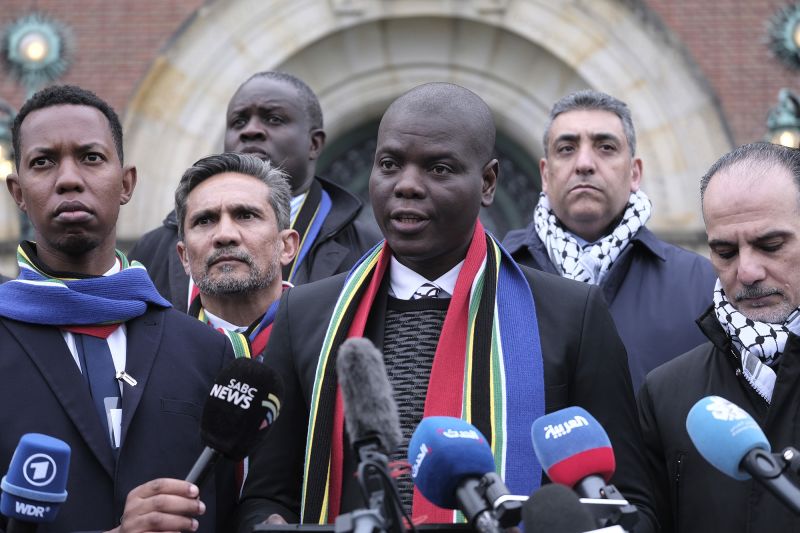
The UN's Historic Ruling on Genocide Case Against Israel

A landmark decision by the United Nations' top court in a genocide case against Israel has stirred reactions from the involved parties, shaping a complex narrative of conflicting perspectives and implications. The ruling, while welcomed by Israel, South Africa, and the Palestinians, has left each party without the outcome they sought.
The Court's Decision
The International Court of Justice in The Hague, the Netherlands, issued a historic ruling in a genocide case against Israel, drawing varied responses from the parties involved. The case, brought forward by South Africa, accused Israel of violating international laws on genocide in its conflict with Hamas in Gaza. The court's decision ordered Israel to 'take all measures' to prevent genocide in the region, a move that has sparked mixed reactions.
South Africa's Minister of Justice and Correctional Services Ronald Lamola, center, and Palestinian assistant Minister of Multilateral Affairs Ammar Hijazi, right, address the media outside the International Court of Justice in The Hague, Netherlands, Thursday, Jan. 11, 2024. The United Nations' top court opens hearings Thursday into South Africa's allegation that Israel's war with Hamas amounts to genocide against Palestinians, a claim that Israel strongly denies. (AP Photo/Patrick Post)
The ruling, however, did not align entirely with the requests made by the parties. While South Africa sought a ceasefire and the halting of the war, the court stopped short of issuing such an order. This decision has elicited contrasting sentiments from the involved parties, shaping a narrative of complex legal and geopolitical implications.
Reactions and Interpretations
Following the ruling, reactions from South Africa, Israel, and the Palestinians have underscored the nuanced nature of the court's decision. South African Foreign Minister Naledi Pandor expressed a desire for a ceasefire but conveyed satisfaction with the outcome. Meanwhile, Israeli government spokesperson Eylon Levi hailed the ruling as a win for the Jewish state, emphasizing the dismissal of South Africa's demand to halt the conflict.
On the other hand, experts have raised concerns about the reputational impact on Israel, highlighting the potential damage to its public image. While some perceive the ruling as a favorable outcome for Israel, others warn of the long-term implications and the tarnishing of the country's reputation on the global stage.
Implications and Future Prospects
The court's interim measure, while shaping the current landscape, sets the stage for further deliberations on the broader implications and the future trajectory of the case. With a full ruling on Israel's alleged violation of the Genocide Convention pending, the long-term repercussions and the evolving narrative surrounding the case remain subjects of intense scrutiny and debate.
While the ruling may have left each party with unfulfilled expectations, it has also sparked reflections on the complexities of the legal, political, and humanitarian dimensions at play. The court's decision, framed by divergent perspectives and reactions, has set the tone for a prolonged legal battle with far-reaching implications for all involved.














